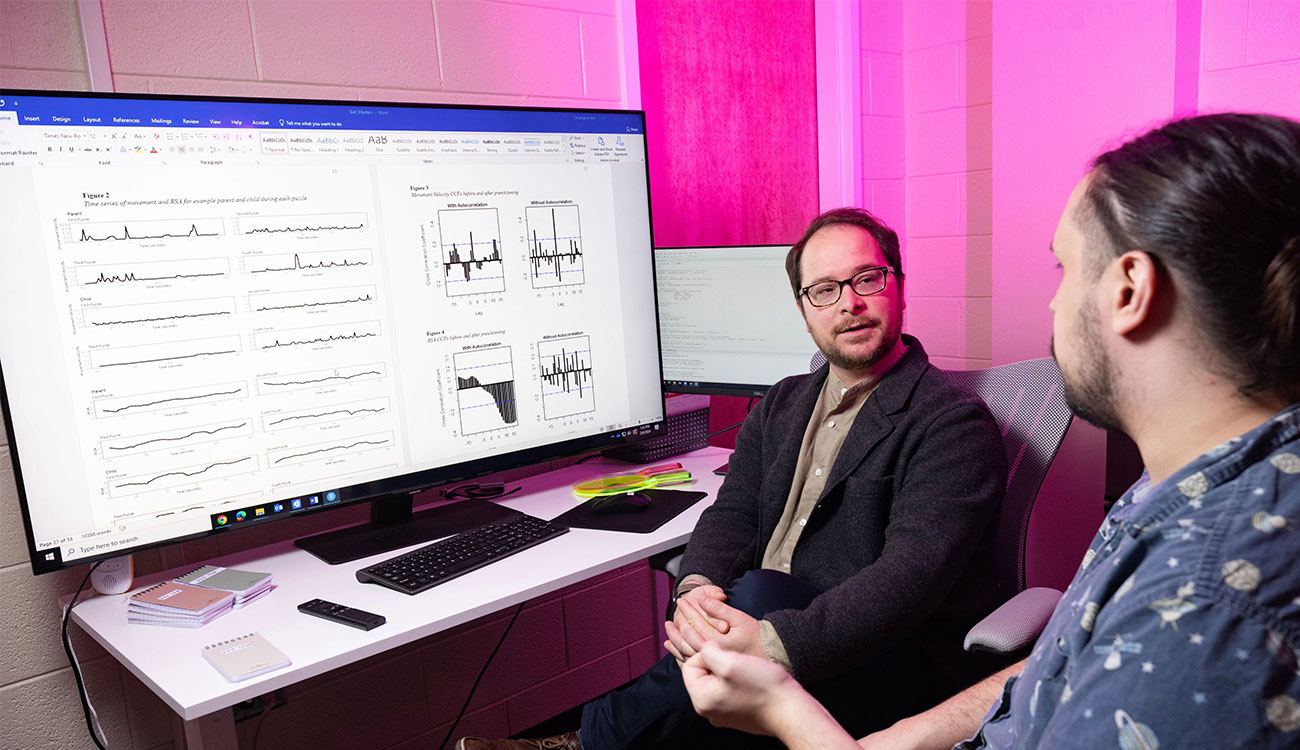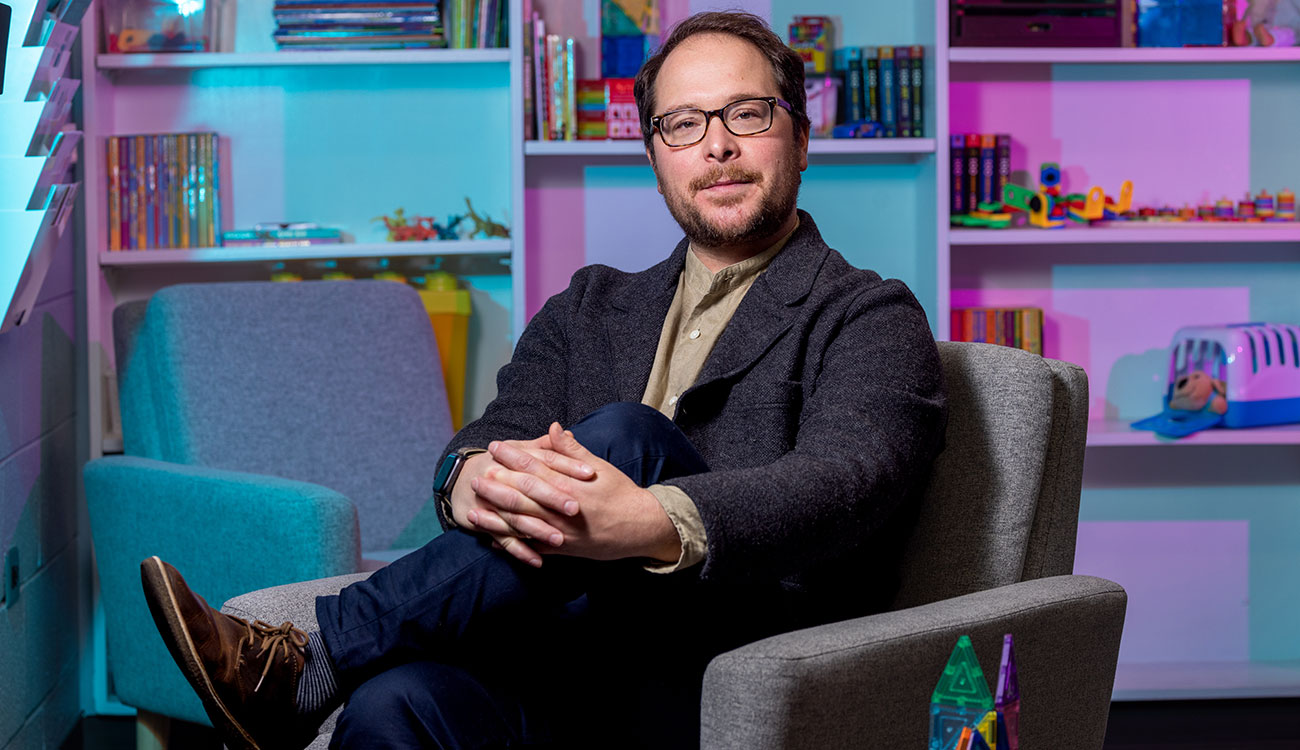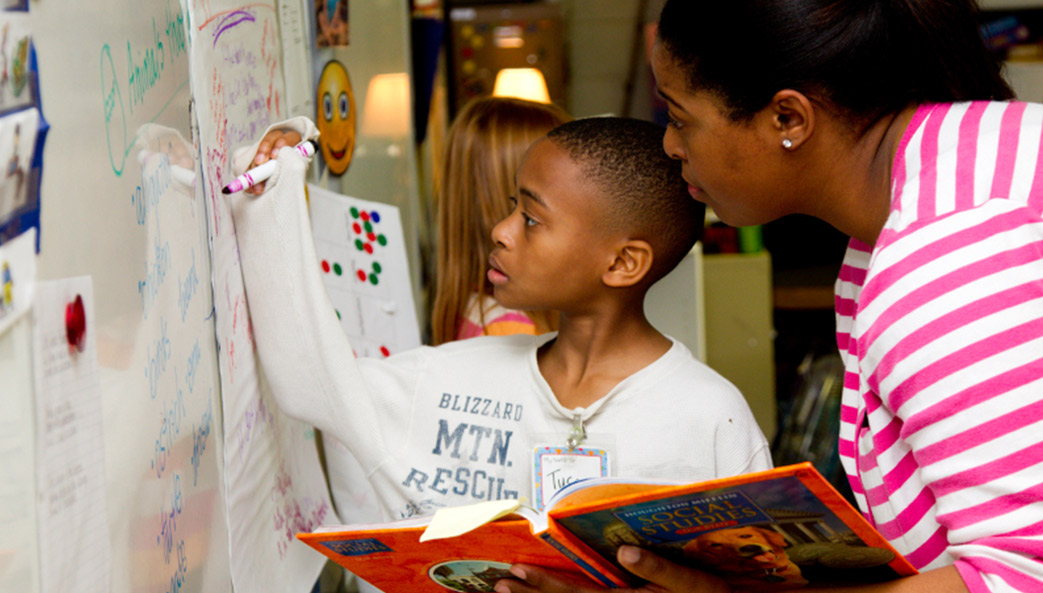There’s a common thread between parenting, teaching, statistics, and engineering for Drew Abney.
Growing up in the Chicago suburbs, he always dreamed of being a high school teacher— specifically, a wood shop and engineering design teacher. His mother, however, had a different future in mind for him.
“My mom used to say I should be a psychologist because I was that friend in high school who everyone went to with their problems and talked them through it,” said Abney, associate professor in the Franklin College of Arts & Sciences Department of Psychology. “And when I was working on my master’s degree, I found myself reading a lot of books on cognition, behavior, and neuroscience.”
While working on his master’s in education, Abney took a statistics class that, surprisingly, made his passing interest in psychology seem like a possible career option. It was the first time in his life he felt he excelled at math. He saw how statistics correlated with the research he was reading about, such as quantifying the probability of behavior changes, and began to consider a different path.
“My mom was sort of right, although she thought I was going to be a clinical psychologist. Still, she likes to remind me she always knew I’d do this,” Abney said.
Abney earned a master’s in experimental psychology and a Ph.D. in cognitive and information sciences, studying at the intersection of experimental psychology and computer science. His current psychology research is the culmination of these past skills.
Beginning with his dissertation, Abney has focused on modeling and quantifying human interaction. The interactions between infants and their caregivers led him to developmental psychology, for which he received a James S. McDonnell Foundation grant to study sensory-motor development during infant sleep.
“Every parent worries about sleep and how their child sleeps, and the developmental trajectories of sleep have always been a fascinating area of research that I wanted to get into,” he said.
As luck would have it, a perfect pilot subject came into Abney’s life around that time: his own daughter.
“Before she was born, I was an expert in developmental psychology, but I wasn’t an expert in parenting,” he said. “It was exciting to watch the different developmental milestones play out before my eyes, not just as a psychologist but as a father.”

While he was developing a sleep room for subjects, Abney’s daughter indicated discomfort in the lab. Abney realized that the best way to study infant sleep would be in their natural home environment.
The research team pivoted to recording infant naps over four sessions during home visits in the local Athens community, using a mobile lab setup.
Initially, the work was difficult. Abney and his team were used to conducting studies in a more controlled environment. They were able to make it work, however, with an infrared camera and mobile electrocardiogram (ECG) system.
During these home visits, Abney’s team uses sensors that monitor infant movements during the rest of the day and artificial intelligence to classify babies’ movements. This allows them to analyze and model movement dynamics during sleep and while they are awake. While home visits were not part of the original study design, Abney said they improved ecological validity since they capture better-quality sleep data in infants’ home environments.
In spring 2024, Abney received the university-wide Charles B. Knapp Early Career Scholar Award for his research. He’s also become a rising star in the classroom; since arriving at UGA in 2020, he has won two Outstanding Teaching Awards from the Department of Psychology.
Abney brings these skills to bear in unique ways, and it still goes back to his interest in statistics.
“I really love teaching statistics at the undergraduate and graduate levels, which not all undergraduate students in psychology are excited about and I accept that,” Abney said. “But what I love about teaching statistics is it’s just a great way to build hands-on skills that are translatable to careers right out of the gate with a bachelor’s degree.”
“Human behavior touches just about every field you can think of, whether it’s economics or political science or sociology. [For people] going into the academic study of psychology, I would encourage them to think more outside their disciplines, [for example] about emerging trends in artificial intelligence and how you can use tools from artificial intelligence to study human behavior.”






